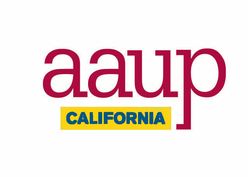By Nanette Asimov
San Francisco Chronicle
January 13, 2017 Updated: January 13, 2017 6:22pm
SACRAMENTO — City College of San Francisco will stay in business and its five-year fight to remain accredited is over, college officials learned Friday.
The private commission that threatened to revoke the school’s accreditation — stunning the college by declaring it so poorly run that it should be shut down — delighted administrators Friday with news that it had voted to extend the school’s all-important seal of approval for a full term of seven years.
“I feel great. City College’s accreditation nightmare is over,” said Rafael Mandelman, president of the college’s Board of Trustees.
City College Chancellor Susan Lamb announced the commission’s decision to students and employees in a triumphant email that capped an exhausting, years-long period of nail-biting in which the threat of closure cost the public millions of dollars in legal fees and state subsidies, led the city into court to defend its namesake college, and sent hundreds of faculty members and students to demonstrate in defense of their beloved school.
“This confirmation is a major accomplishment. It is a testament to the dedication and hard work of the entire City College community who came together to meet — and even exceed — the standards of our accreditors. Congratulations!” Lamb wrote.
Related stories:
- Controversial head of CCSF accrediting group on leave
- CCSF can’t prove it taught 16,000 students, must pay $39
California Community College Chancellor Eloy Oakley called the announcement “a new beginning for City College of San Francisco and its students,” and said the college has been strengthened by “years of institutional improvement.”
The 19 members of the Accrediting Commission for Community and Junior Colleges made the decision behind closed doors during their semiannual, three-day meeting at a capital hotel this week, as they also considered accreditation questions for 33 other colleges from the region it covers: California, Hawaii and the Pacific Islands.
Mandelman said he was highly encouraged about City College’s prospects after he and Lamb made their case to the commission on Thursday afternoon.
Relying on an extensive self-evaluation report, Lamb and Mandelman hoped to show that City College has satisfied all 14 accrediting standards and numerous substandards in full — concerning fiscal management, campus decision-making, technology, library services and more. Failure would mean the commission could revoke the school’s accreditation and prohibit any appeal.
In 2012, City College — considered one of the largest colleges in the country with a reported 90,000 students — received the most severe sanction, “show cause,” requiring it to show why it should remain accredited and not be shut down. Only one California community college has had its accreditation revoked: Compton College, near Los Angeles, which closed in 2005.
Over the years, the commission had argued that City College’s governance and fiscal management problems were so severe that it had no choice but to vote to revoke accreditation. Financial planning was in disarray and officials were unable to make accurate financial projections, independent audits found. Nor could the college reconcile its revenue and spending with the number of students enrolled and their academic needs, among other problems.
But the promised revocation of the college’s accreditation was repeatedly held at bay. A legal challenge from San Francisco City Attorney Dennis Herrera bought the school more time in 2014. Then, a 2015 deal with the college gave it two more years — until now — to fully comply with all accrediting standards.
On Thursday, college officials persuaded the commission that City College is now able to accurately forecast and monitor its budgets, a basic yet critical task for running a college.
Today, their report promises, City College “annually updates its multi-year financial projections” as required, has rebuilt its financial reserves and has “placed a high priority” on funding long-term obligations like retiree health costs.
The famously secretive and by-the-books commission had indicated through a spokeswoman earlier this week that it would sit on its verdict for up to 30 days and disclose it only when it announced accrediting decisions for the other 33 schools. But the fact that it revealed the news right away indicates that the once hard-nosed commission also has been transformed by its battle with City College.
State college officials initially supported the commission’s crackdown on City College. But as the commission revealed that its intention was less about helping the college improve and more about shutting it down, state officials began to share the alarm shown all along by college faculty. Soon the commission was the subject of two lawsuits, a state audit and a reprimand from the U.S. Department of Education, which oversees it.
Today, only five of the original 19 commissioners who sought to revoke the college’s accreditation remain on the panel. Also gone is the influential president of the agency, Barbara Beno, who strongly supported revoking the school’s accreditation. She was placed on administrative leave in December for undisclosed reasons.
Faculty, who for five years battled Beno and the commission in court and on the streets, are ecstatic at the news.
“All of us at the college are so excited and relieved that the accreditation crisis is over,” said Tim Killikelly, president of the American Federation of Teachers Local 2121, which represents faculty.
In a reference to the enrollment decline of nearly 30,000 full- and part-time students since the crisis began — a crisis in itself that is costing the college millions of dollars in state funding — Killikelly said: “Sign up and take a class!”
Nanette Asimov is a San Francisco Chronicle staff writer. Email: [email protected] Twitter: @NanetteAsimov
Go to http://www.sfchronicle.com/ccsf/ for full coverage

 RSS Feed
RSS Feed